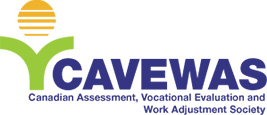In 2014, Canada welcomed over 250,000 new immigrants, and these new residents offer career professionals a market with widely varying career management needs. Many of these newcomers will come from countries where a job search is vastly different to that in Canada. For example, India where it is the norm to include the employment status of your spouse on your resume. Or Iran, where it is disrespectful for a man to make direct eye contact with a woman – even during an interview. Many will arrive in Canada perfectly aware of what it takes to find suitable employment, but if you do find yourself working with a new immigrant who requires additional support, here are some tips to help you to help them succeed in a Canadian job search.
Do your Research
Before you meet with your client, research the business/job search culture in their home country. Having an understanding of why someone is behaving a certain way during your meeting will go a long way to developing a positive working relationship. This will also identify behaviours that you can politely suggest that they change for a successful Canadian job search. Sites such as World Business Culture can be useful for a quick summary.
Explain the Resume Format
Of course, you will develop a resume that is suitable for the Canadian market. However, take the time to discuss the differences between a resume in Canada and their own country. With various international resume standards – and cultures where it is deemed disrespectful to question a professional – you want to ensure that they understand why you have chosen a certain format.
Advise Gaining Canadian Experience
As all career professionals know, it takes more than a resume to get a job. One of the most common barriers to employment cited by immigrants is their lack of Canadian work experience. Like it or not, Canadian employers value Canadian work experience over international experience. Why? They are more comfortable hiring someone who has previously worked in Canada as they are familiar with the workplace norms and be able to “fit in”. Volunteer work is a great way to overcome this barrier and gain some Canadian volunteer employment experience in a related field.
Encourage English Language Skills – Practice Makes Perfect
Potential employers may often be concerned that your clients’ English language skills are not of a standard that will enable them to communicate confidently with colleagues and stakeholders. Clients should be encouraged to use English as much as possible (it is recommended for at least 8 hours per day) and to interact with English speaking Canadians regularly. It is also useful to listen to Canadian television and radio and read Canadian newspapers to gain familiarity with conversational terms and phrases. Anyone with a particularly strong accent may consider accent reduction training.
Ensure Credentials are Assessed
Hopefully, before moving to Canada, your client will have researched whether their qualifications and credentials are recognized here. This is particularly important for anyone working in regulated professions. Individuals can contact Service Canada to determine if their profession is regulated and find out how to have their credentials assessed.
Mitigate Visa & Work Permit Concerns
Anyone who has experienced emigration knows how time consuming and stressful visa and work permit applications can be! Many employers may also be put off hiring immigrants out of concern about immigration costs and paperwork. New immigrants need to make sure that their immigration does not become the focus of conversation when meeting potential employers. They need to be knowledgeable, and take responsibility for, the documentation and financial costs.
Use One Name Consistently
Many immigrants will take on an English name when arriving in Canada. This decision is entirely up to the individual, but if they do, they should use one name consistently throughout their job search (i.e. don’t have their official name on their resume and then sign off an email with their English name). A resume is not a legal document so they can choose to use whichever name they prefer.
